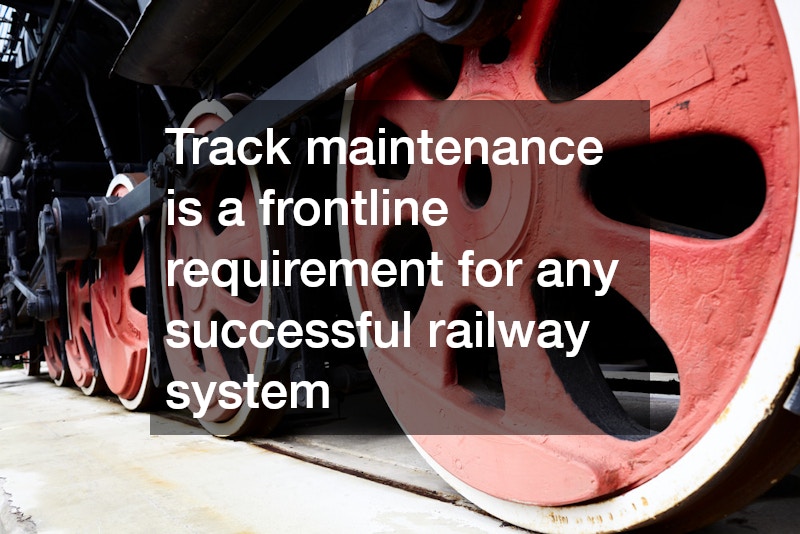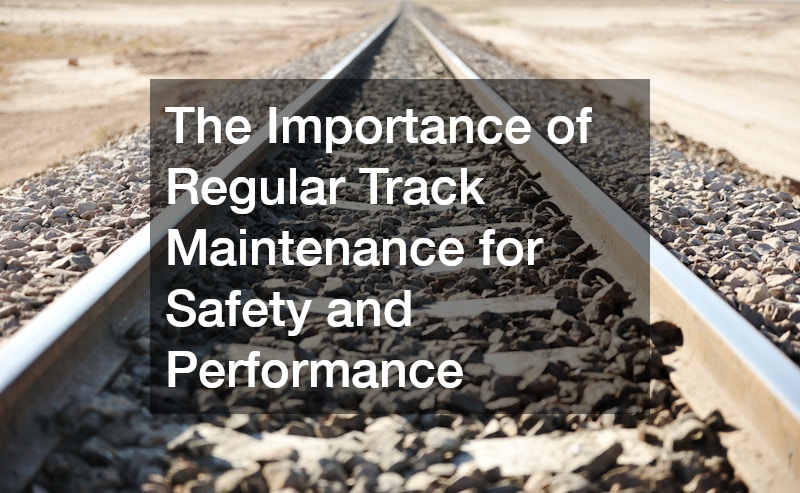
In the realm of modern transportation infrastructures, railways remain pivotal for efficient and sustainable movement of people and goods. The integrity of a railway system heavily depends on meticulous track maintenance practices. Ensuring maintenance is performed regularly is not just a matter of routine; it is crucial for the safety and performance of train networks worldwide.
Overlooking maintenance can lead to detrimental consequences, which may include increased risk of accidents and costly service interruptions. The modern world demands high-speed rail services, which in turn necessitate stringent track upkeep standards.
Therefore, understanding the importance of maintenance becomes essential for any organization involved in railway operations.
This article explores the multifaceted benefits of consistent railroad maintenance, emphasizing its importance in safeguarding lives and optimizing the performance of railway systems. By examining different aspects, we underline how crucial maintenance is to the very foundation of railway efficiency. From safety enhancements to economic benefits, the arguments for regular upkeep are compelling.
Safety Enhancements
One of the primary reasons is the enhancement of safety for all passengers and freight. Proper maintenance helps in identifying and rectifying potential hazards like rail defects, misalignments, and worn-out ties. The timely resolution of such issues dramatically decreases the risk of derailments and other railway accidents.
Continuous monitoring allows for early detection of faults that could escalate into severe safety threats. For example, railways utilize advanced technology to detect corrosion or metal fatigue before it results in failure. Fostering a culture of safety through consistent track maintenance not only protects passengers but also instills confidence in the railway system as a reliable mode of transport.
Additionally, maintenance plays a critical role in emergency preparedness. By ensuring that tracks are in optimal condition, railway operators can better manage unexpected incidents and minimize potential damages. Safety is the cornerstone of efficient railway operations, and regular track maintenance is the key to unlocking it.
Economic Benefits
Investing in maintenance translates directly into economic advantages for railway companies and the broader economy. By preventing accidents and service disruptions, effective maintenance practices save substantial costs associated with repairs and compensations. In the long term, well-maintained tracks extend the lifespan of railway components, thereby reducing replacement expenses.
Railways that prioritize maintenance tend to have more consistent and predictable schedules, leading to increased customer satisfaction and loyalty. This translates into higher ridership and cargo volumes, contributing positively to the revenue streams of operators. Moreover, well-maintained tracks reduce wear and tear on rolling stock, lowering maintenance costs and maximizing profitability.
From a wider economic perspective, efficient maintenance supports industrial activities by ensuring reliable supply chains. Delays caused by track-related issues can have ripple effects across various sectors, impacting productivity and economic growth. Hence, the economic benefits of track maintenance substantially outweigh the initial investment required for regular upkeep.
Performance Optimization
Optimizing railway performance is impossible without systematic maintenance. Smooth and well-aligned tracks contribute to improved speed and efficiency of train operations, enhancing overall service quality. This is particularly significant in a competitive transportation market where performance can often differentiate between thriving and struggling operators.
Railroads with regular track maintenance schedules benefit from increased track availability and reduced downtime. By minimizing service interruptions, trains can run more frequently and on time, satisfying the demands of passengers and freight clients alike. This level of reliability in train operations fosters trust and further establishes railways as a preferred mode of transport.
Enhanced track performance also facilitates the adoption of more advanced technologies, such as high-speed trains and automated rail management systems. By maintaining tracks to a high standard, rail operators can ensure compatibility with such innovations, driving forward the future of railway transport. Ultimately, consistent maintenance is a critical enabler of peak performance in railway systems.
Regular track maintenance is an indispensable aspect of modern railway systems, serving as the backbone of safety, economic viability, and performance optimization. Ignoring the necessity of consistent upkeep can lead to catastrophic failures and irreparable damage to a railway’s reputation and financial standing. As this article underscores, the benefits of rigorous maintenance are extensive, making it a priority for all railway stakeholders.
Whether it involves averting accidents, ensuring economic benefits, or enhancing performance, the significance of track maintenance cannot be overstated. Every step taken towards diligent maintenance practices contributes not only to the functioning of the railway but also to public safety and convenience. Future advancements in rail technology will further hinge on the foundation of robust maintenance regimes.
Track maintenance is not merely a back-office function but a frontline requirement for any successful railway system. By investing in these essential activities, rail operators can secure a future of safe, economic, and high-performance rail travel. The emphasis on maintaining excellence in track care ensures that railways will continue to be an essential component of global transportation networks.

